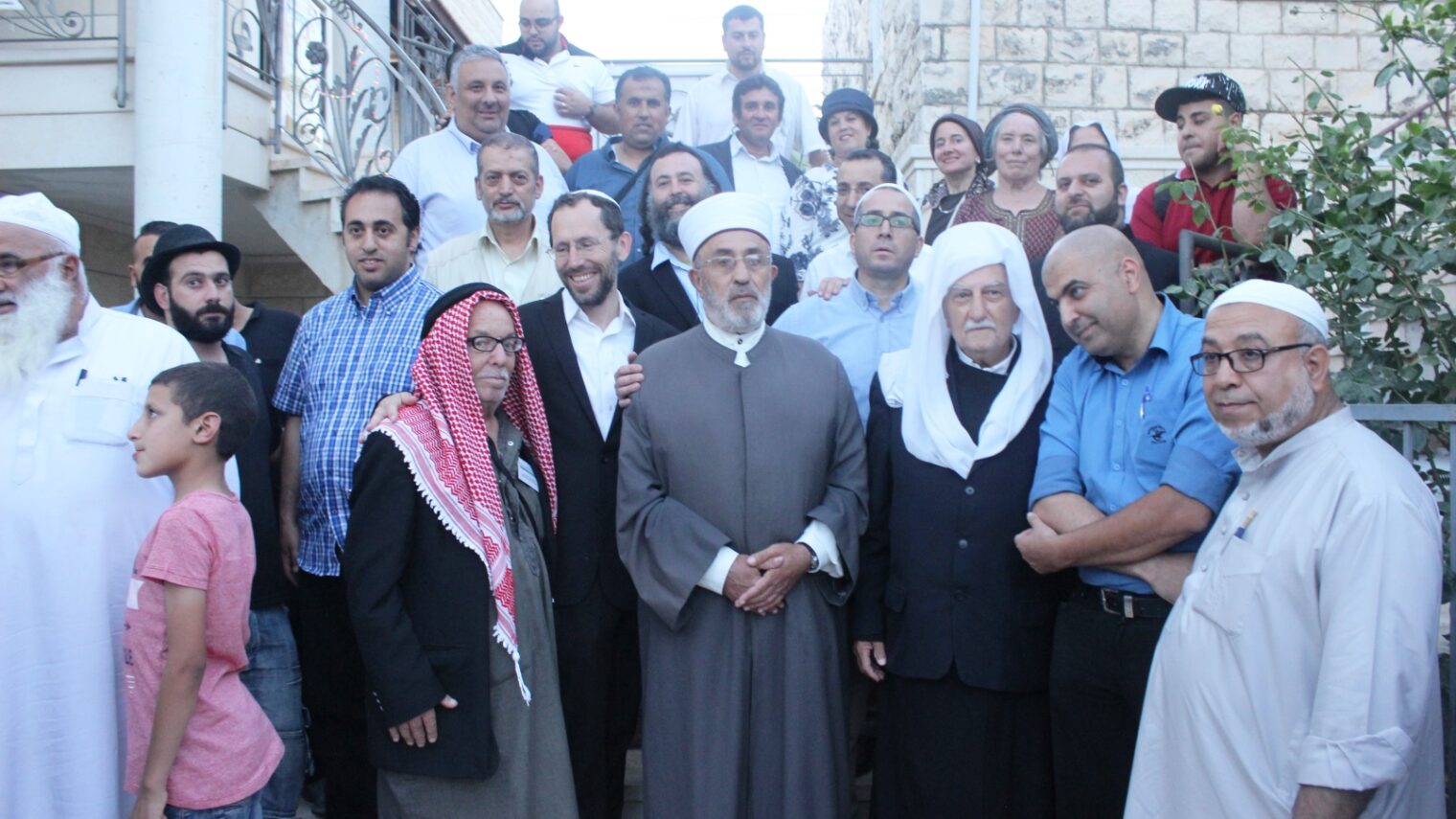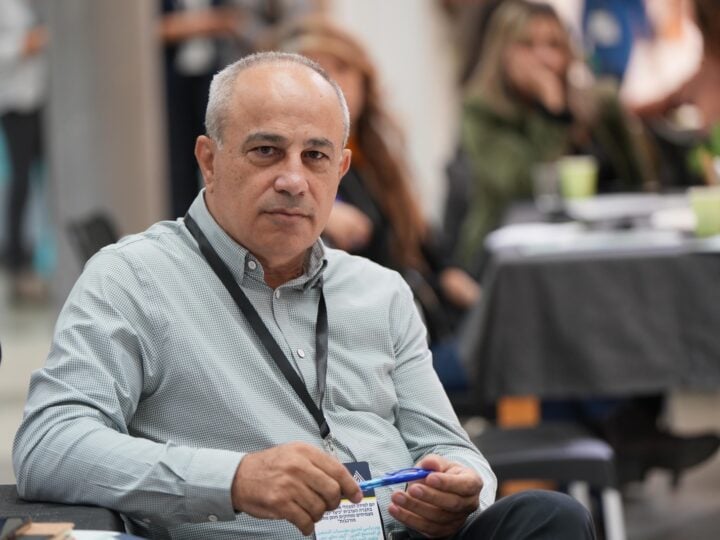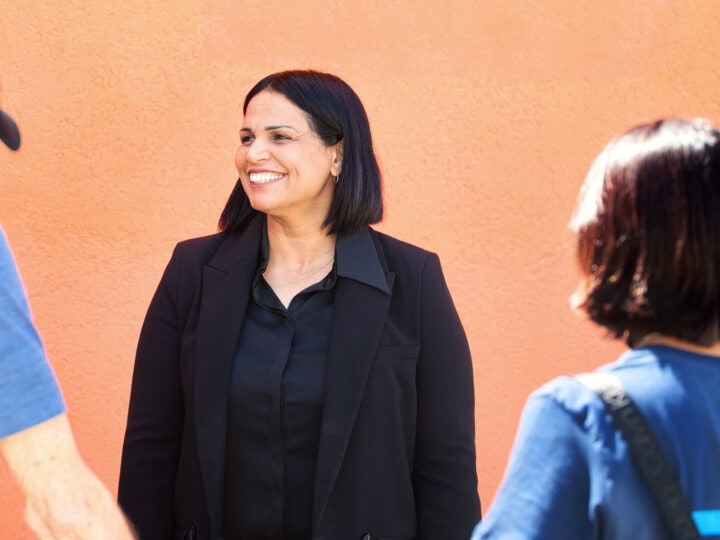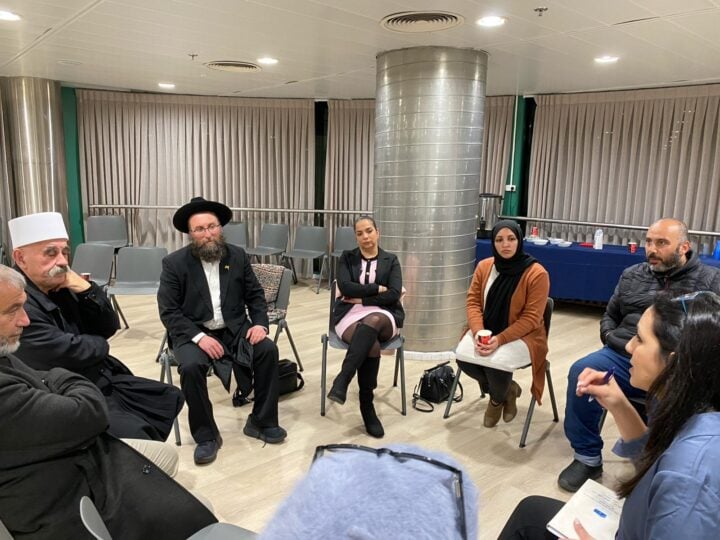Two hundred and twenty Jews, Muslims, Christians, and Druze, including male and female religious leaders and community members from each of these faiths, came to the Galilee village of Ilut on June 8 to share a Multi-Faith Ramadan Iftar Dinner for Peace.
The dinner has been held annually for more than a decade as the signature event of the Abrahamic Reunion, a network of peacebuilders, religious and spiritual leaders and citizens from across Israel and the Palestinian Authority territories.
Iftar is the break-fast meal ending each day of fasting during the Muslim month of Ramadan.
“This event helps bring down the walls of separation and fear between our people, the shared family of Abraham,” says Abrahamic Reunion Executive Director in Israel, Eliyahu McLean, 48, an Orthodox Hasidic Jew from Netivot.
He was raised in Hawaii and studied Arabic and Islam at the University of California-Berkeley, where he also was a pro-Israel activist. Having participated in Young Judaea high school and gap-year programs in Israel, he came back in 1998 with Interns for Peace.
“I made aliyah with the intention of doing Arab-Jewish peace work and trying to build a bridge of mutual respect,” McLean tells ISRAEL21c.
He cofounded a group called Jerusalem Peacemakers and became a follower of the late Rabbi Menachem Froman, an Orthodox peace activist and one of the founders of Abrahamic Reunion in 2004 along with Sheikh Ghassan Manasra of Nazareth and Anna Less of Sarasota, Florida.
“It started with the Iftar Dinner for Peace and only four years ago did we expand to become a year-round organization with monthly events,” says McLean. “Each of the different religious leaders who are part of our family of spiritual peace builders hosts an event in their home or community.”
The Iftar dinner was hosted this year by Sheikh Khaled Abu Ras, the organization’s incoming Muslim co-executive director in Israel. A longtime participant in Abrahamic Reunion, Abu Ras recently finished a PhD on Sufi philosophy and teaches Islam and Arabic in an Arab primary school in Ilut.
In addition to Ilut residents including local high school principals and teachers, people came from diverse areas: Jerusalem, Golan Heights, Tel Aviv, Jericho, Bethlehem, Hebron, Nablus (Shechem) and others.
Rabbi Yakov Nagen, a yeshiva head in Otniel in the Hebron Hills and also active with the prize-winning Interfaith Encounter Association, co-chairs his region of Abrahamic Reunion with a Muslim imam from Tel Sheva near Beersheva.
McLean says the Arab hosts always go out of their way to get strictly kosher food for the religious Jews in attendance. But the fellowship goes beyond that. Nagen told attendees that two years ago, the Ramadan fast day on which the dinner was held coincided with the Jewish fast day of the 17th of Tammuz.
“While the Muslim fast ended at 6:49, the Jewish fast ended at 7:15. And the Muslims insisted on waiting to eat until the Jews broke their fast,” relates McLean. “Rabbi Nagen always shares that story to show how we make room respectfully for one another in our religious practice. This model can serve as a bridge for faithful people from all walks of society.”
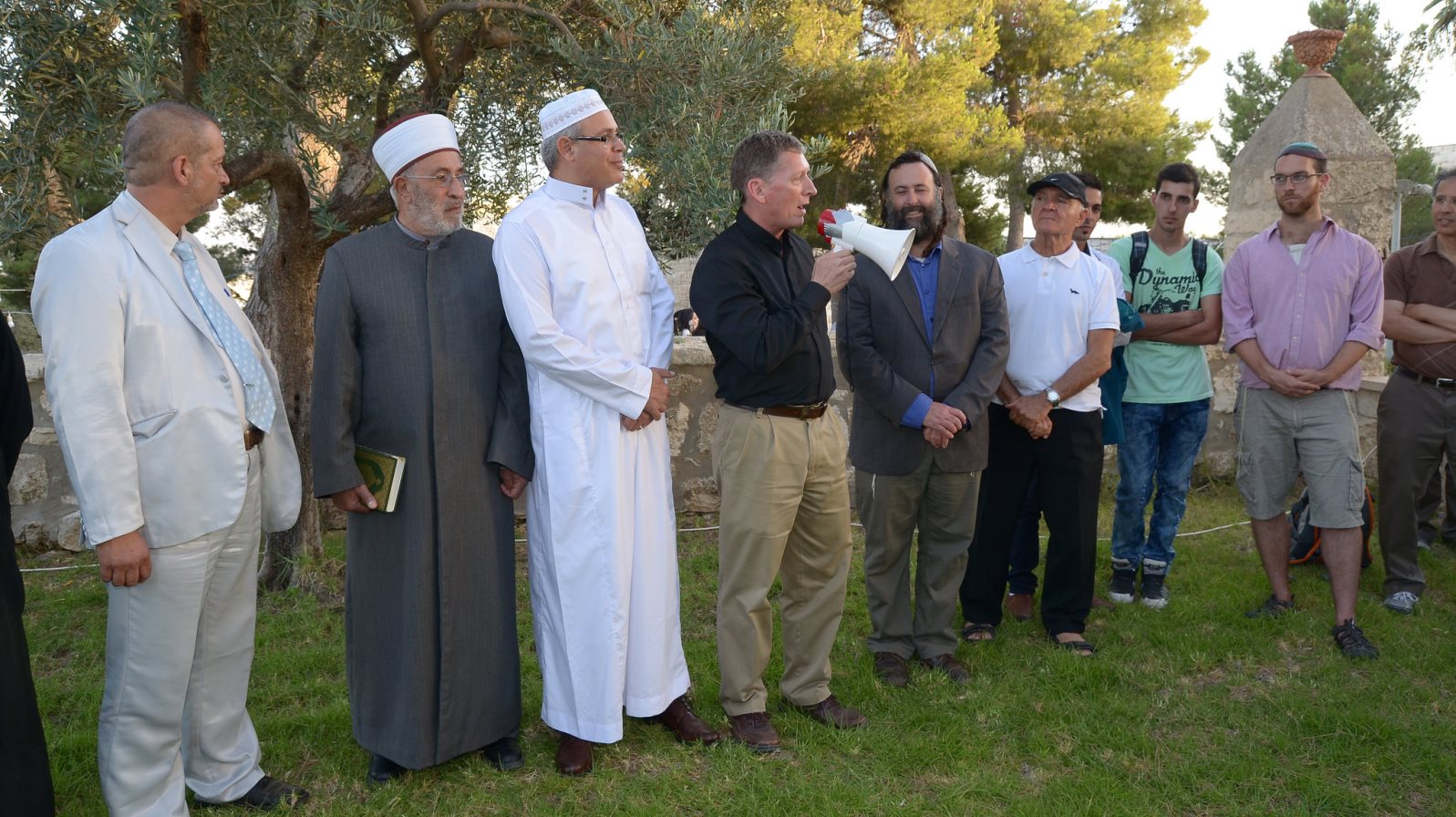
Participants have widely diverging views on the practical details of peacemaking in the Holy Land, but each also believes that in order for any peace initiative to succeed there must be “a grassroots interreligious coming together because no plan will work if there is hatred between us. We say that fear and hatred of the other will drive us from any of these solutions,” says McLean.
After the meal and discussions about fasting in the different religions, and a live performance by Indian-American hip-hop artist Nimo Patel, the Iftar Dinner for Peace closed with a circle at which people exchanged blessings and prayers for peace.
“It’s a dialogue of devoutness rather than a dialogue of triumphalism. We don’t get into who’s right and who’s wrong,” says McLean, who has been featured in two viral Nas Daily videos by Arab-Israeli vlogger Nuseir “Nas” Yassin.
It is not only nonprofit organizations that reach out to Muslim leaders during Ramadan.
The Monday after the Abrahamic Reunion dinner, President Reuven Rivlin continued a yearly tradition by hosting a traditional Iftar meal at his official residence in Jerusalem for Muslim leaders from Israeli society along with ambassadors to Israel from Egypt, Jordan, Turkey and Kazakhstan and representatives of the IDF, Police and Prison Services, Israeli industrialists, academics, teachers and doctors.
For more information on Abrahamic Reunion, click here.




